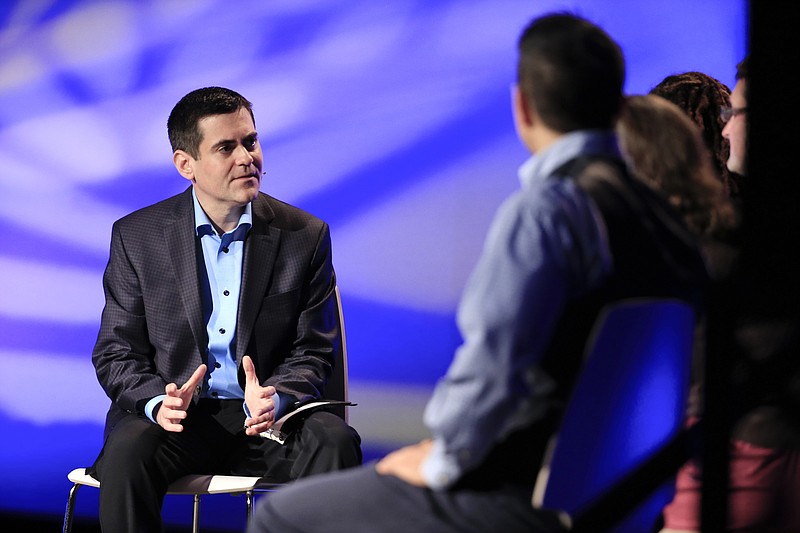The Rev. Russell Moore, head of the Southern Baptist Church's Ethics and Religious Liberty Commission, says he'd like to see the denomination offer multiethnic congregations in the wake of violence spurred by the deaths of black men at the hands of white police officers in Ferguson, Mo., and New York City.
Apparently, it's his "if you build it, they will come" moment.
But neither Moore nor any Southern Baptist, nor any person of any religious standing, can force faith. Faith is something within the heart, something intrinsic, something between one person and God.
Denominations can open buildings, call them multiethnic, biracial, interracial or crossracial. They can have a mixed race church staff, soothing black/white marketing, vow to sing spirituals and old standards, and offer coffee and doughnuts, but they can't impel people of mixed races to attend if they don't feel a faith connection.
And violence following controversial deaths is not a reason to open churches. It may be a reason for fostering a dialogue among races, a dialogue between aggrieved parties and the police, or a dialogue about what the church should be and do, but it is not a reason to start a church.
The way churches begin today has changed over the past half century. Fifty years ago, if a downtown church saw a growing neighborhood without a church of its specific denomination, it recruited people in the downtown church who lived in the growing area to start meeting and inviting other people in the area to attend a new congregation. Eventually, the gathering became large enough, and a bricks-and-mortar church was built.
Today, in a much more secular country, the job is harder. Sometimes with the help of denominations and sometimes not, like-minded people, be they Orthodox Christian, socially liberal/doctrinally conservative or Bible inerrancy believing, begin meeting and attempt to find others like themselves. They may meet in homes, storefronts or schools. If the congregation grows, they may rent a larger facility or build their own.
Certainly, a multiethnic church could start that way -- sponsored by the Southern Baptist Church -- through a gathering of people who have something in common. Churches, in turn, grow from the contact of one individual to another but not from erecting a sign in the ground proclaiming a multiethnic church and expecting people to arrive in proper racial percentages (33.33 percent black, 33.33 percent Hispanic, 33.33 percent white). That's not how life works in churches or the business world.
Fully mixed-races churches already exist in Chattanooga and around the country, and some do well. Members of those churches have found a home, felt their heart warmed and are grounded in a place of service.
Many other churches in the Scenic City and throughout the U.S. are not fully mixed but have a few members of different races. The latter have found something special in attending a church where the majority of members are of a different race, and have stayed.
The oft-cited phrase about 11 o'clock on Sunday morning being the most segregated hour in America has been attributed, within various quotations, to Dr. Martin Luther King Jr. In some quotes, he is condemning the existence of such an hour; in some, he is stating it as fact.
Various scholars have said that segregated hour is an example of diversity (a desire for differences in preaching styles, music and length of service) or a lack of diversity (the existence of a majority of one race). But it is what has become comfortable to many blacks and whites.
The Southern Baptist Church, then, can declare racism a sin, apologize for the church's role in supporting slavery and Jim Crow policies, and elect a black president, all of which it's done, but it cannot cure racial ills alone by opening multiethnic churches.
Nor can it simply appoint black denominational leaders and seminary leaders, a lack of which was cited as a problem by one black Southern Baptist pastor in Texas in a recent Associated Press report, and expect that will change things. It won't.
Indeed, such race-conscious moves go against the words of Apostle Paul, who said in Galatians 3:28, "There is neither Jew, nor Greek, slave nor free, male nor female, for you are all one in Christ Jesus."
Churches and individuals who live with that in mind, in multiethnic or segregated congregations, already understand that "God so loved the world" -- each one and all of them.
